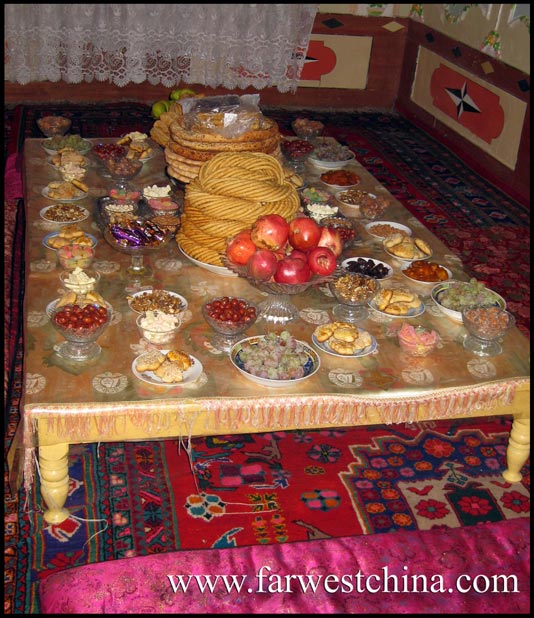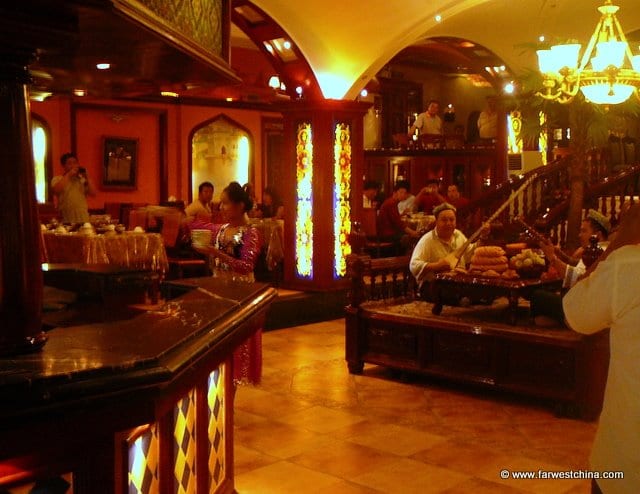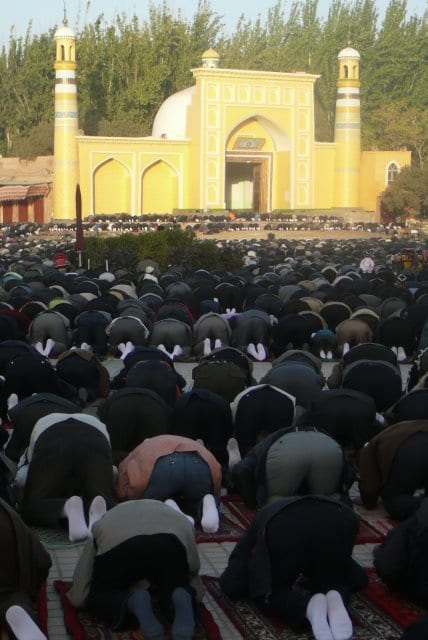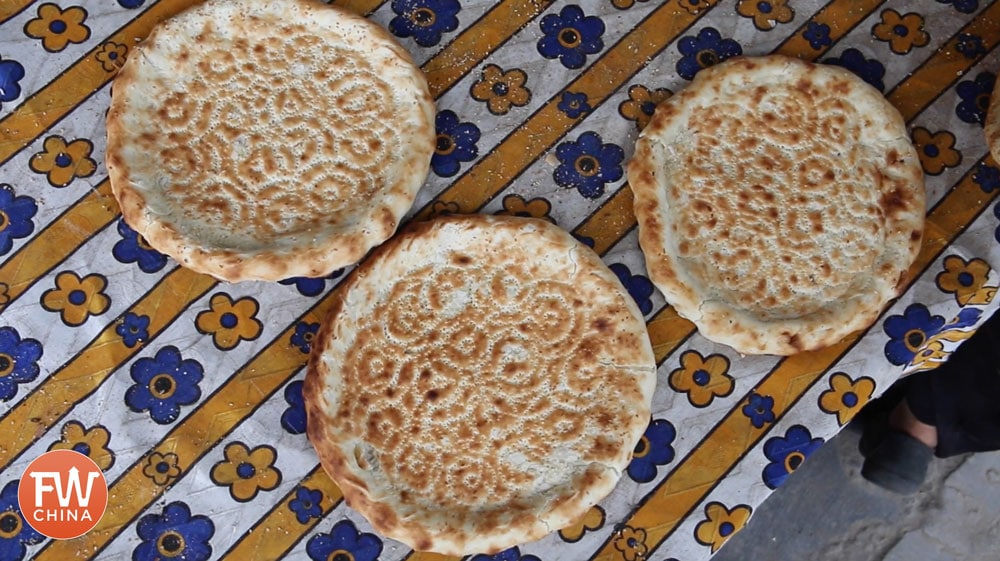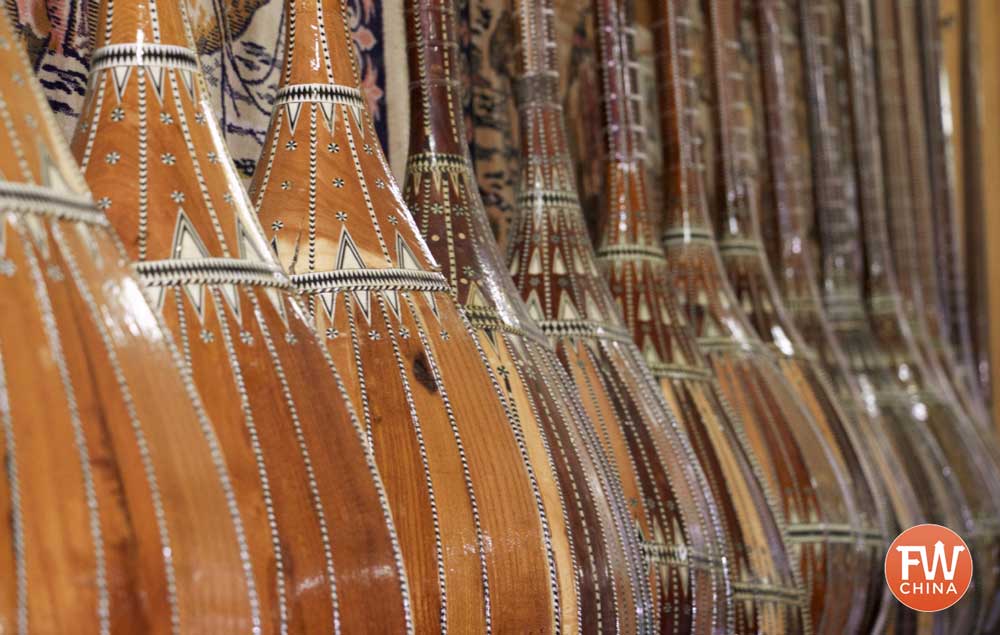Lesson in Central Asian Etiquette for Uyghur and Kazakh
One of the first things I learned when living in Xinjiang is that the Uyghur and Kazakh cultures are two of the most beautiful and hospitable in all of the world. It is a point of pride for them, and rightly so.
What this has meant for me and my wife is multiple invitations to Uyghur weddings, amazing meals of Uyghur polo and family get-togethers. Mind you this isn’t just our friends – it’s strangers making these requests as well.
If you’re going to spend any amount of time in Xinjiang you’ll likely receive a similar invitation. While the Central Asian culture is very forgiving to foreigners who don’t quite know proper etiquette, this is an opportunity for you to impress your Uyghur and Kazakh host by respecting their culture.
Take this quick lesson on Central Asian etiquette and you’ll be ready for any situation you face in Xinjiang.
Visiting a Uyghur Home
It’s such a privilege to enter into a Uyghur home. Whether entering a wealthy, modern home or a modest one, the general rules of etiquette remain the same for most Uyghur.
If the family is expecting your visit (and sometimes even if they aren’t!), you’ll probably find a table with a spread that looks fit for a king.
- Entering the Home: I’m not sure if this is an ancient practice or not, but with every household I entered I took off my shoes. Watch what your host is doing and follow suit. Handshakes and hugs are common among both men and women, but for men dealing with a woman always allow her to initiate contact to be safe.
- Washing Your Hands: Although not always the case in modern homes, be prepared to wash your hands prior to eating. The custom is to wash three times, allowing the host to pour water over your hands into a basin. Do not shake your hands to dry, but rather let them drip and lightly dry them with the offered towel.
- Eating with Your Hands: Once seated around the table (cross-legged if on the floor), you’ll probably find that eating with your hands is quite possibly acceptable, if not preferred. Most food is bite size, but in the cases where it is not (Uyghur bread for example), break it up into pieces to eat instead of biting off a piece.
- Drinking Tea: Tea is most likely the beverage you will be offered. When drinking, it is best to use both hands to bring the cup up to your mouth instead of one. It’s not really offensive if you don’t, but it looks weird.
- Completing the Meal: Finishing your plate of food indicates that you are still hungry (this actually goes for most of China and Central Asia, I think!). If you are getting full, leave some food on your plate. It won’t stop your host from offering you tons more food, but hopefully it will slow them down!
Visiting a Kazakh Yurt
When making your way along the border lands of western Xinjiang, you’ll likely run across many yurts dotting the grasslands (What is a yurt?).
Whether you pay to enter a yurt or are lucky enough to get an invitation from a local, here are a few things to keep in mind:
- Watch Your Step: When first entering the yurt through the wooden door, avoid stepping on the threshold.
- Greeting: Shaking hands is common, as is kissing on the cheek for friends. For a man greeting a woman, you should probably nod and let the woman initiate any contact just to be safe. Women should follow the lead of any other women or just do what’s comfortable.
- Meal Time: Wait to be seated inside the yurt. It’s best to allow the head of the family to direct seating, eating and all toasting.
- Cleaning Up: It’s not rude to offer to help wash dishes and clean, but be prepared to insist hard if you really mean it. They probably won’t let you!
Eating in a Uyghur Restaurant
The etiquette for eating at a Uyghur restaurant really isn’t that much different than any other restaurant in China and Central Asia. Still there area few things that you should keep in mind.
- Pay Before You Eat: Many Uyghur restaurants require you to pay up front when you order your food. This is common, so don’t think they’re trying to scam you.
- Eating with Your Hands: Eating with your hands is less common in a Uyghur restaurant (as opposed to in a home). Usually spoons and chopsticks are offered at the table.
Participating in Religious Activities
When it comes to prayers, visits to the mosque and religious festivals, be prepared for what seems like contradicting standards.
Because tourism plays such a big role in certain cities, any ignorance on your part won’t be offensive to the locals even though you may be politely corrected.
- Entering a Mosque: Many mosques in Urumqi and throughout Xinjiang are open to the public for a fee, even to those who aren’t Muslim. My wife would cover her head (not completely) out of respect even though we were never explicitly asked to. In the prayer halls, you’ll be asked to take off your shoes to walk around.
- Religious Festivals: If you’re invited to join a family in celebrating one of their festivals, such as Corban Festival or Ramadan, do it! It’s an unforgettable experience, trust me. It’s perfectly acceptable for you to take part, just be mindful of what others are doing and you’ll be fine.
So there you go! This should be a good starting point for any cross-cultural interactions you have in Xinjiang. Would you add anything else?

